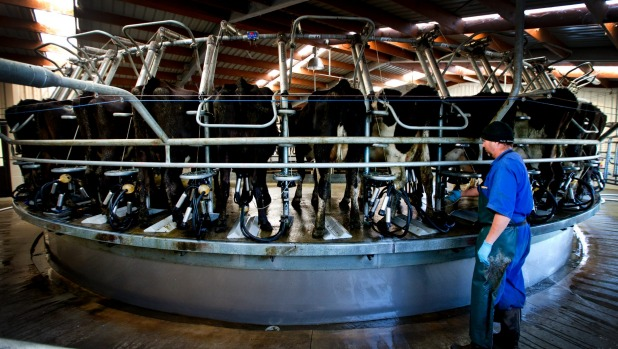 |
| Reviews and Templates for Expression We |
New Zealand, Australia's greenhouse gas emission plans described as 'inadequate'

NZ's climate ambassador Jo Tyndall has said the country's economy, which relies on beef and sheep farming, would be hurt by increased efforts to reduce greenhouse gas emissions.
Australia and New Zealand say they face unusually high costs to cut greenhouse gas emissions because of their respective dependence on coal and livestock, after criticism that they are doing too little to tackle climate change.
So far more than 50 nations representing 70 per cent of world emissions have submitted strategies to the United Nations for curbs on emissions beyond 2020, meant to be the building blocks of a UN climate deal due to be agreed in Paris in December.
Australia, giving details of a plan issued last month, said that its relatively strong economic growth, a rising population and dependence on coal for 64 per cent of electricity generation made it costly to rein in emissions.
"We think it is an ambitious target," Australia's climate ambassador Peter Woolcott told delegates at week-long talks in Bonn of a goal of reducing its emissions by between 26 and 28 per cent below 2005 levels by 2030.
New Zealand's climate ambassador Jo Tyndall, the only other developed nation representative at the same session, said her country's dependence on dairy farming and sheep was a big source of the greenhouse gas methane, produced by the animals' digestive tracts.
The New Zealand target submitted in July, of cutting emissions by 30 per cent below 2005 levels by 2030, "would represent quite a significantly higher cost to our economy" than action by many other countries, she said.
Still, a Climate Action Tracker, run by a group of scientists, has ranked both countries' plans "inadequate", along with plans by developed nations such as Japan and Canada.
It has given a slightly better rating, of "medium" to the United States and the European Union.
The United States, for instance, plans to cut emissions by 26-28 per cent below 2005 levels by 2025, five years earlier than Australia.
A problem is that there is no UN mechanism to assess which nations are doing most, or least, to rein in global warming that the UN panel of climate experts says is causing more heatwaves, droughts and rising sea levels.
Some nations want the Paris summit, from November 30-December 11, to agree a strict set of reviews for every plan, putting pressure on laggards to do more.
Martin Kaiser of Greenpeace also said Australia and New Zealand's goals were among the weakest: "There's a huge gap," between the ambition of developed countries and the cuts needed, he said.
|
|
|
|
Copyright 2011 Energy and Technical Services Ltd. All Rights Reserved. Energyts.com |